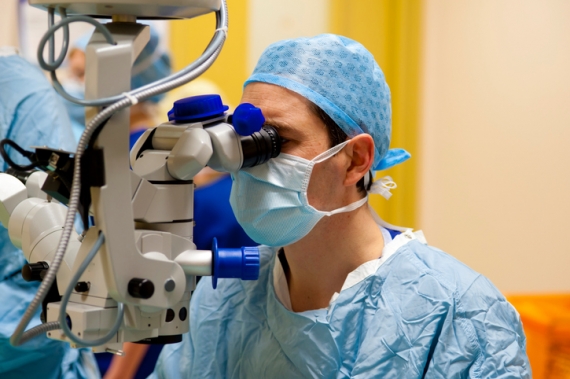How Do Cataracts Affect Vision?
If you are wondering how cataracts affect vision and when you should consider having them removed, the specialists at Elmquist Eye Group can explain the symptoms and help you plan an appropriate course of treatment.
Elmquist Eye Group has provided exceptional eye care to the residents of Southwest Florida for more than 25 years.
Dr. Yasaira Rodriguez is Board Certified by the American Board of Ophthalmology and a fellow of the American Academy of Ophthalmology. She specializes in refractive cataract surgery, upper eyelid surgery, and in-office procedures.
What Are Cataracts and What Causes Them?
 The lens of your eye is normally transparent. This enables light to pass easily through it to the retina, where images of what you are seeing are processed and sent to your brain via the optic nerve.
The lens of your eye is normally transparent. This enables light to pass easily through it to the retina, where images of what you are seeing are processed and sent to your brain via the optic nerve.
The lens is made up mostly of water and protein. As we age, the natural proteins may begin to clump together, making some or all of the lens cloudy. This makes it difficult for the light to travel through the lens, and the images processed by the retina are no longer clear. This is a cataract.
Symptoms of cataracts may include blurred or double vision, glare or haloes from lights, poor night vision, and frequent changes in prescription for your eyeglasses or contact lenses. The first evidence of cataracts is usually discovered during a cataract evaluation.
When to Have Your Cataract Removed
Cataracts do not require immediate removal but will progressively worsen over time. When left untreated, cataracts are the leading cause of blindness in the world, but a simple 15-minute outpatient surgery can restore your clear vision. Consider these facts:
- Cataracts do not improve. Cataracts will get worse over time, and your vision will deteriorate. The only solution is to remove the clouded lens and replace it with an artificial intraocular lens.
- Cataracts can interfere with your daily routine. A cataract may eventually prevent you from doing the activities you enjoy. If you need clear vision for work, driving, or hobbies like reading, cooking or sewing, or too much glare is affecting your favorite outdoor activities, such as golfing, skiing or surfing, it could be time to have the cataract removed.
- Cataracts make night driving unsafe. Cataracts reduce your ability to see in low contrast which is critical for seeing curbs, lane markers and objects in the road. They can also distort the light that comes into your eyes, causing you to see halos around street lights, lighted signs, and headlights from oncoming traffic. This can make driving at night stressful and put you and other drivers at risk.
We encourage you to discuss your situation with Dr. Rodriguez who will help you decide on the best course of action.
For more information about how cataracts can affect your vision and about the treatment options, get in touch with Elmquist Eye Group at (239) 936-2020 and schedule an appointment. The Elmquist team will be delighted to help.
